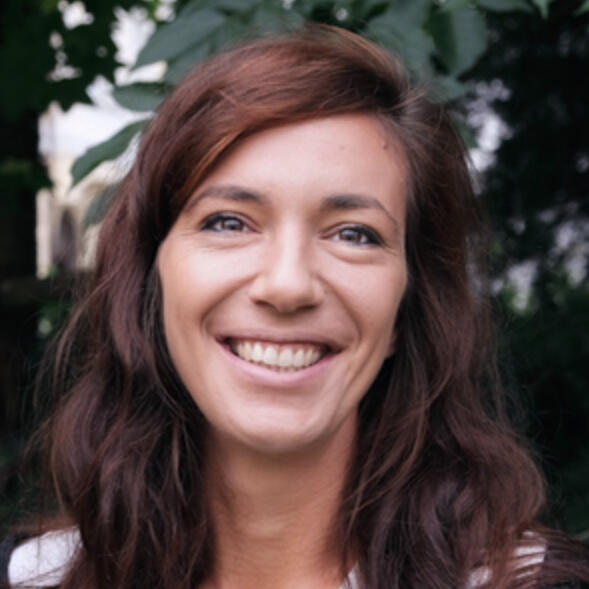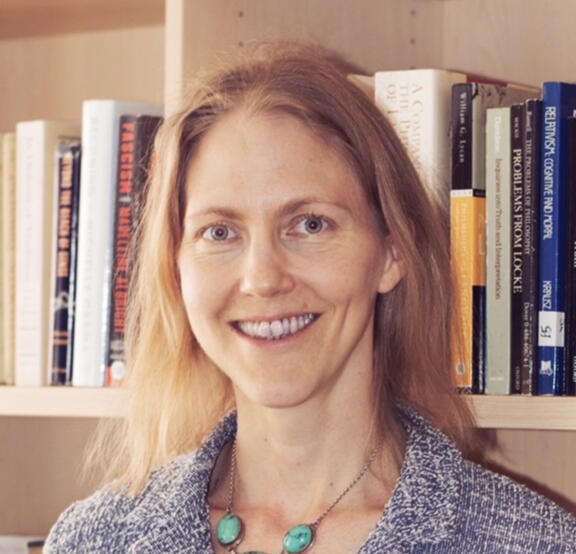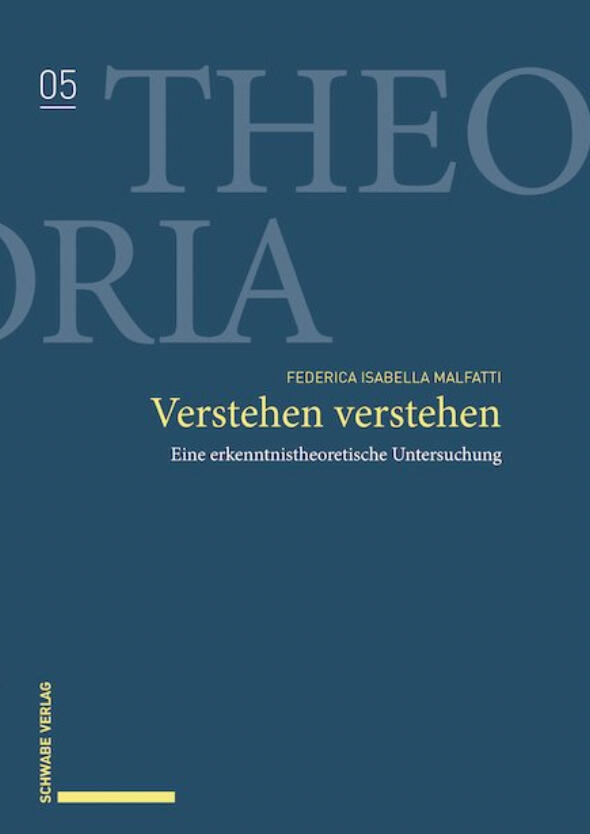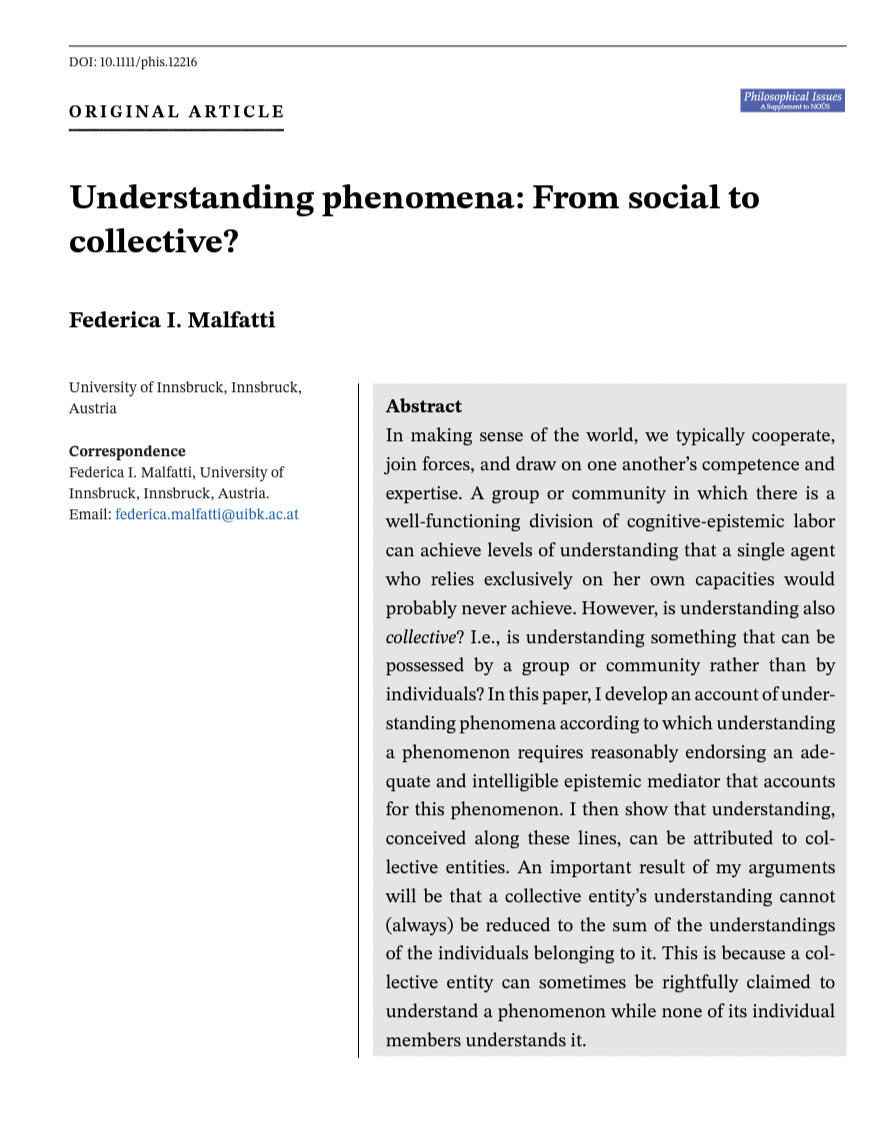About the project
TrAU! is a TWF-funded project investigating the relation between trust, autonomy and understanding.
That intellectual autonomy is a desirable thing, something to admire in others and to nurture and cultivate in ourselves, is broadly assumed as true. We should “use our own reason”, as Immanuel Kant famously claimed. But what does it mean? What does an autonomous subject look like? And what is the role of autonomy in a world in which competence and expertise are allocated unequally among subjects?

What is it about intellectual autonomy that makes it worth being pursued? Is intellectual autonomy valuable for its own sake, or are there some other goods (truth, for example, or understanding) that intellectual autonomy helps us achieve?

Moreover, is intellectual autonomy always a good thing, or are there risks connected to its exercise? If there are, are these risks worth taking? These are the questions that the TrAU! project aims to address.
Our team
We are a team of researchers working at the University of Innsbruck and at the Humboldt University of Berlin.

Univ.-Ass. Federica I. Malfatti, PhD
Project Leader
Federica Malfatti is assistant professor (wissenschaftliche Mitarbeiterin) and Deputy Head of Department at the Department of Philosophy (Theological Faculty) of the University of Innsbruck. Her research interests lie at the intersection between epistemology and philosophy of science. She has published a book on understanding and she has published multiple papers on the social aspects of understanding and on the question whether and how understanding can be acquired on the basis of the words of others.
Univ.-Prof. Katherine Dormandy, DPhil
Co-Investigator
Katherine Dormandy is professor of philosophy at the Department for Philosophy (Theological Faculty) of the University of Innsbruck. One major focus of her research is epistemology and its applications in social settings. Central topics include epistemic authority, religious and worldview disagreement, the epistemological import of first-person narratives, and the role of interpersonal trust.


Univ.-Prof. Dr. Christoph Jäger
Co-Investigator
Christoph Jäger is professor of philosophy and Head of Department at the Department of Philosophy (Theological Faculty) of the University of Innsbruck. From 2021 to March 2024, he was Guardini Professor at the Humboldt University of Berlin. His research interests include epistemology, social epistemology, aesthetics and the philosophy of religion. He has published many highly influential papers on the notion of epistemic authority and on normative issues in epistemology.
Georg Stadler
Student Assistant
Georg Stadler is in the process of finishing his Bachelor's degree in Philosophy at the University of Innsbruck. He also brings some valuable skills to the table, due to his experience as a freelance media producer and personal development coach. Public relations, photo/video and event organization are his main duties at TrAU!.

Sophia Lucke
Student Assistant
Sophia Lucke is presently pursuing her studies in theology and philosophy at the Catholic Faculty of the University of Innsbruck. Her academic interests encompass logic, philosophy of religion, and metaphysics, reflecting her constant enthusiasm for exploring new frontiers in these areas. At TrAU!, she actively contributes to the organization of the workshop "Gatekeeping in Science".

Workshop "Gatekeeping in Science"
April 24-25, 2024 | Dekanatssitzungssaal
An international group of philosophers and psychologists will explore the topic of “gatekeeping” in science. Two ranges of questions will be addressed. First: who is entitled to decide when a claim counts as scientific? Who gets to decide which specific methods should be banned or allowed in science, and which results should count as acceptable or unacceptable? On what basis do or should such decisions be made? Second: how are scientific results best communicated to the public? What does good or effective science communication look like?
Organizers: Katherine Dormandy & Federica I. Malfatti
SPEAKERS
Melanie Altanian, University of Freiburg
Claus Beisbart, University of Berne
Jeroen de Ridder, Vrije Universiteit Amsterdam
Katherine Dormandy, University of Innsbruck
Bruce Grimley, University of Central Nigaragua and Achieving Lives Ltd.
Gerhard Mayer, Institute for Frontier Areas of Psychology and Mental Health
Phil Parker, Phil Parker Training Institute
Raimund Pils, University of Salzburg
Tanja Rechnitzer, University of Hannover
Eric Winsberg, University of South Florida/Cambridge University
DISCUSSANTS
Konstantina Efaplomata, University of Innsbruck
Johanna Stüger, LMU/Cambridge University
Jonas Wittwer, University of Berne/University of Innsbruck


"Authority & Autonomy"
Workshop (May 10-11, 2022, Innsbruck)
That intellectual autonomy is a desirable thing, something to admire in others and to nurture and cultivate in ourselves, is broadly assumed as true. We should “use our own reason”, as Immanuel Kant famously claimed. But what does it mean? How does an intellectually autonomous subject look like? The intellectually autonomous subject is not completely intellectually independent and self-reliant. We live and thrive intellectually in communities in which there is a division of epistemic labor, and in which competence and expertise are allocated unequally among subjects. But then, what is the role of autonomy in a world in which we have no choice but to rely on experts and epistemic authorities to achieve our epistemic goals? Can a subject be intellectually autonomous, while relying on others and while trusting others for the achievement of intellectual goods – such as truth, knowledge, and understanding?An international spectrum of philosophers addressed and discussed these topics. Early career scholars served as commentators. This allowed for a horizontal knowledge transfer on all levels of experience and fostered the general discussion as our first international event within the TWF-funded TrAU! project.
SPEAKERS
Michel Croce, University of Genoa
Katherine Dormandy, University of Innsbruck
Catherine Z. Elgin, Harvard University
Thomas Grundmann, University of Cologne
Christoph Jäger, University of Innsbruck and Humboldt University of BerlinCOMMENTATORS
Federica Isabella Malfatti, University of Innsbruck
Clement Maybambala, University of Innsbruck
Georg Stadler, University of Innsbruck
Johanna Stüger, University of Innsbruck
Michael Vollmer, University of Innsbruck

Research
Here we try to list our relevant research and findings in relation to the TrAU! project. This overview will be updated regularly, so be sure to come back again later!To have an overview of the investigators' full research output, check out their Philpapers pages:Federica I. Malfatti
Katherine Dormandy
Christoph Jäger
Fake Authorities
Jäger, C. forthcoming. Fake Authorities. Acta Analytica, online first.
An epistemic agent A is a false epistemic authority for others iff they falsely believe A to be in a position to help them accomplish their epistemic ends. A major divide exists between what I call "epistemic quacks", who falsely believe themselves to be relevantly competent, and "epistemic charlatans", i.e., false authorities who believe or even know that they are incompetent. Both types of false authority do not cover what Lackey (2021) calls "predatory experts": experts who systematically misuse their social-epistemic status as a cover for predatory behavior. Qua experts, predatory experts are competent and thus could (and maybe sometimes do) help their clients. But should we count them as genuine epistemic authorities? No, I argue, they are false epistemic authorities because, in addition to their practical and moral misconduct, such experts systematically deceive their clients, thereby thwarting the clients’ epistemic ends.
Gatekeeping in Science: Lessons from the Case of Psychology and Neuro-Linguistic Programming
Dormandy, K. & Grimley, B. 2024. Gatekeeping in Science: Lessons from the Case of Psychology and Neuro-Linguistic Programming. Social Epistemology, online first.
Gatekeeping, or determining membership of your group, is crucial to science: the moniker ‘scientific’ is a stamp of epistemic quality or even authority. But gatekeeping in science is fraught with dangers. Gatekeepers must exclude bad science, science fraud and pseudoscience, while including the disagreeing viewpoints on which science thrives. This is a difficult tightrope, not least because gatekeeping is a human matter and can be influenced by biases such as groupthink. After spelling out these general tensions around gatekeeping in science, we shed light on them with a case study from psychology. This concerns whether academic psychologists rightly or wrongly classify the applied-psychology framework of NLP (‘neuro-linguistic programming’) as unscientific and even pseudoscientific. This example of gatekeeping is particularly instructive because both the NLP community and the psychology community, we argue, make legitimate but also illegitimate moves. This case gives rise to several general insights about gatekeeping in science more generally.
How Science Tracks Understanding
Malfatti, F. I. 2024. How Science Tracks Understanding. Philosophical Problems in Science 74: 317-320.
This review article discusses the book Understanding How Science Explains the World by Kevin McCain, published by Cambridge University Press (2022). With an impressive combination of clarity and depth, McCain provides the reader with a firm grasp of how science works, of what science aims to achieve, and of what makes science a successful epistemic enterprise. The review article reconstructs the book’s overall dialectic and identifies one potential point of tension which concerns the role of truth or accuracy in scientific knowledge.
Verstehen verstehen. Eine erkenntnistheoretische Untersuchung
Malfatti, F. I. 2023. Verstehen verstehen. Eine erkenntnistheoretische Untersuchung. Berlin: Schwabe Verlag.
Wir Menschen streben danach, die Wirklichkeit zu verstehen. Eine Welt, die wir gut verstehen, ist eine, die wir "im Griff" haben, mit der wir gut umgehen können. Aber was heißt es genau, ein Phänomen der Wirklichkeit zu verstehen? Wie sieht unser Weltbild aus, wenn wir ein Phänomen verstanden haben? Welche Bedingungen müssen erfüllt sein, damit Verstehen gelingt? Die Kernthese des Buches ist, dass wir Phänomene der Wirklichkeit durch noetische Integration verstehen. Wir verstehen Phänomene, indem wir den entsprechenden Informationseinheiten eine sinnvolle und angemessene Position in unserem Weltbild zuschreiben und insofern unser Weltbild in gewissem Maße der Wirklichkeit entspricht.
Open Access generously funded by the FWF.
Towards Ideal Understanding
Malfatti, F. I. 2023. Towards Ideal Understanding. Ergo 10 (21): 578-611. (With Mario Hubert)
What does it take to understand a phenomenon ideally, or to the highest conceivable extent? In this paper, we answer this question by arguing for five necessary conditions for ideal understanding: (i) sufficient representational accuracy, (ii) intelligibility, (iii) sufficient truth, (iv) reasonable endorsement, and (v) fit. Even if one disagrees that there is some form of ideal understanding, these five conditions can be regarded as sufficient conditions for a particularly deep level of understanding. We then argue that grasping, novel predictions, and transparency are not reasonable conditions for ideal understanding.
Understanding Phenomena: From Social to Collective?
Malfatti, F. I. 2022. Understanding Phenomena: From Social to Collective? Philosophical Issues (Nous Supplement) 1: 253-267.
In making sense of the world, we typically cooperate, join forces, and draw on one another’s competence and expertise. A group or community in which there is a well-functioning division of cognitive-epistemic labor can achieve levels of understanding that a single agent who relies exclusively on her own capacities would probably never achieve. However, is understanding also collective? I.e., is understanding something that can be possessed by a group or community rather than by individuals? In this paper, I develop an account of understanding phenomena according to which understanding a phenomenon requires reasonably endorsing an adequate and intelligible epistemic mediator that accounts for this phenomenon. I then show that understanding, conceived along these lines, can be attributed to collective entities. An important result of my arguments will be that a collective entity’s understanding cannot (always) be reduced to the sum of the understandings of the individuals belonging to it. This is because a collective entity can sometimes be rightfully claimed to understand a phenomenon while none of its individual members understands it.
Loving truly: An epistemic approach to the doxastic norms of love
Dormandy, K. 2022. Loving truly: An epistemic approach to the doxastic norms of love. Synthese 200 (3): 1-23.
If you love someone, is it good to believe better of her than epistemic norms allow? The partiality view says that it is: love, on this view, issues norms of belief that clash with epistemic norms. The partiality view is supposedly supported by an analogy between beliefs and actions, by the phenomenology of love, and by the idea that love commits us to the loved one’s good character. I argue that the partiality view is false, and defend what I call the epistemic view. On the epistemic view, love also issues norms of belief. But these say simply (and perhaps surprisingly) that you should adhere to epistemic norms in forming and maintaining beliefs about loved ones. I offer two arguments for the epistemic view. The first appeals to the emotional responses of love, which, when sensitive to what the loved one is really like, can make love great and be morally transformative. The second is a new argument for why caring for a loved one requires true beliefs about him. We see that there may be some boundaries, such as stuffy traditions, that love is right to defy, but that epistemic boundaries are not among them.
Epistemic Self-Trust: It's Personal
Dormandy, K. 2021. Epistemic Self-Trust: It’s Personal. Episteme, online first.
What is epistemic self-trust? There is a tension in the way in which prominent accounts answer this question. Many construe epistemic trust in oneself as no more than reliance on our sub-personal cognitive faculties. Yet many accounts – often the same ones – construe epistemic trust in others as a normatively laden attitude directed at persons whom we expect to care about our epistemic needs. Is epistemic self-trust really so different from epistemic trust in others? I argue that it is not. We certainly do rely on our cognitive faculties to achieve epistemic ends; but I argue that we also have the normatively rich sort of epistemic trust in ourselves. Moreover, there is a theoretical need for this normatively rich notion of epistemic self-trust: positing it yields the best account of how we secure important epistemic goods, including knowledge and recognition as knowers. I argue this by giving an account of epistemic trust in others and showing that it can be generalized to epistemic trust in oneself.
The Social Fabric of Understanding: Equilibrium, Authority, and Epistemic Empathy
Jäger, C. and Malfatti, F. I. 2021. The Social Fabric of Understanding: Equilibrium, Authority, and Epistemic Empathy. Synthese 199: 1185-1205.
We discuss the social-epistemic aspects of Catherine Elgin’s theory of reflective equilibrium and understanding and argue that it yields an argument for the view that a crucial social-epistemic function of epistemic authorities is to foster understanding in their communities. We explore the competences that enable epistemic authorities to fulfil this role and argue that among them is an epistemic virtue we call “epistemic empathy”.
On Understanding and Testimony
Malfatti, F. I. 2021. On Understanding and Testimony. Erkenntnis, 86: 1345-1365.
Testimony spreads information. It is also commonly agreed that it can transfer knowledge. Whether it can work as an epistemic source of understanding is a matter of dispute. However, testimony certainly plays a pivotal role in the proliferation of understanding in the epistemic community. But how exactly do we learn, and how do we make advancements in understanding on the basis of one another’s words? And what can we do to maximize the probability that the process of acquiring understanding from one another succeeds? These are very important questions in our current epistemological landscape, especially in light of the attention that has been paid to understanding as an epistemic achievement of purely epistemic value. Somewhat surprisingly, the recent literature in social epistemology does not offer much on the topic. The overarching aim of this paper is to provide a tentative model of understanding that goes in-depth enough to safely address the question of how understanding and testimony are related to one another. The hope is to contribute, in some measure, to the effort to understand understanding, and to explain two facts about our epistemic practices: (1) the fact that knowledge and understanding relate differently to testimony, and (2) the fact that some pieces of testimonial information are better than others for the sake of providing one with understanding and of yielding advancements in one’s epistemic standing.
Do We Deserve Credit for Everything We Understand?
Malfatti, F. I. 2021. Do We Deserve Credit for Everything We Understand? Episteme, online first.
It is widely acknowledged in the literature in social epistemology that knowledge has a social dimension: we are epistemically dependent upon one another for most of what we know. Our knowledge can be, and very often is, grounded on the epistemic achievement of somebody else. But what about epistemic aims other than knowledge? What about understanding? Prominent authors argue that understanding is not social in the same way in which knowledge is. Others can put us in the position to understand, but when we understand something, this accomplishment is to be credited mainly if not entirely to us, as it is due to the successful exercise of our own cognitive abilities. In this paper, I show that the social dimension of understanding closely resembles the social dimension of knowledge. I distinguish between three different ways in which a subject can depend upon another subject for (either the acquisition or the possession of) a certain epistemic good. I then argue that all these kinds of epistemic dependence apply to knowledge and understanding alike. If I am right, understanding is not (always) an achievement to be (mainly) credited to the single epistemic agent who understands.
Project details
The TrAU! project is structured around three work packages called A, B and C.
A
Work package A is titled “Intellectual autonomy: its nature”. The overarching aim of this work package is to shed light on the nature of intellectual autonomy. We will tackle questions such as: What does intellectual autonomy involve? How does the intellectually autonomous subject look like? Is intellectual autonomy essentially keyed to understanding? If yes, how so? And how does intellectual autonomy relate to trust? Trust and autonomy seem to pull in different directions: the more one trusts, the less autonomous one is. Our hope is to show that even trusting can, under certain conditions, represent a great exercise of intellectual autonomy.
B
Work package B is titled “Intellectual autonomy: its risks”. Trusting the word of others can, no doubt, be dangerous. It makes us vulnerable. But what about trusting (only or primarily) oneself? In what sense, if any, does intellectual autonomy make us vulnerable? We will tackle these questions from two different sides. First, we will explore the relation between understanding and the subjective feeling of understanding. The feeling of understanding, we will argue, is a seductive, but often unreliable indicator of genuine understanding. Second, we will explore the phenomenon known under the label of “meta-ignorance”.
C
Work package C is titled “Intellectual autonomy: its value”. Why is intellectual autonomy a desirable thing? What do we admire exactly about an intellectually autonomous subject? We would like to explore the hypothesis that what we admire about an autonomous subject is her successful intellectual agency – i.e., the fact that she is successful at achieving the intellectual goals she has set for herself, and that she is responsible for the design of her intellectual profile. The autonomous subject, we will argue, is able to make the absolute best out of the circumstances. She optimizes her resources. She takes everything her epistemic environment has to offer. She exercises her intelligence not to figure out everything by herself, but to track down and to identify trustworthy sources of information. This, we contend, is at least part of what it takes to be intellectually autonomous in a world in which a division of intellectual labor is necessary and competence and expertise are distributed unequally among subjects.











